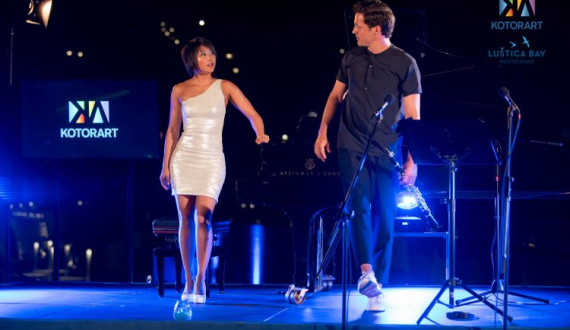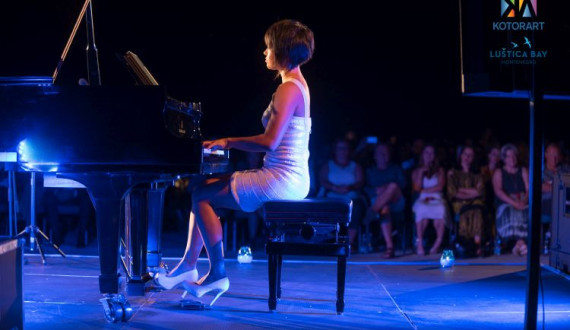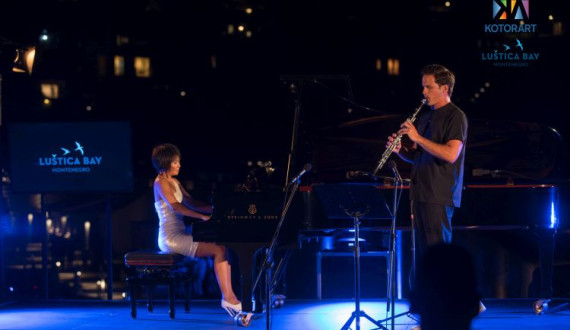Spontaneity as a Therapy
Humorous, but artistically up to the task in their interpretation, picturesque but balanced in genre and style – this could be, in a nutshell, the impression Yuja Wang and Andreas Ottensamer left on the audience on Wednesday, August 7, after the concert at Luštica Bay. This year's KotorArt Don Branko's Music Days, for a reason, once again hosted the most sought-after pianist of the younger generation on today's music scene. After last year's two concerts – with violinist Leonidas Kavakos and with percussionist Martin Grubinger, this year she performs with Ottensamer twice, but at different venues and, probably, with a slightly different program.

Yuja Wang and Andreas Ottensamer, who was also a guest of KotorArt several years ago, share not only the stage but also a common record label, the most famous in the world – Deutsche Grammophon. The pianist, about whom both audiences and music critics speak in glowing terms, is recognized for her unique blend of technical bravado, musical contemplation, and emotional depth. All this could be explored in her interpretations at KotorArt: bravado in jazz compositions, musical contemplation in Liszt’s transcription of Gretchen am Spinnrade by Franz Schubert, and emotional depth expressed in Waltz in C sharp minor by Fryderyk Chopin. To her skillful character transformation – from Chopin and Schumann to Arturo Marquez’s Danzón and Tritsch-Tratsch-Polka by Johann Strauss, one must add her special passion for jazz.

Yuja has collaborated with eminent conductors, including Abbado, Barenboim, Dudamel, Gergiev, Tilson, Pappano, Dutoit, and Mehta, among others, while with Ottensamer, the principal clarinetist of the Berlin Philharmonic, she has recently recorded several compositions for the Blue Hour CD, after which, as well, the music event at KotorArt is called. Part of the repertoire from the album that they performed included piano pieces by Johannes Brahms and Felix Mendelssohn, which Ottensamer arranged for clarinet and piano – Mendelssohn’s two Songs Without Words, Op. 67, No. 2 and Op. 30, No. 6, and Brahms’ Intermezzo Op. 118, No. 2. When it comes to original works, the musicians made a special impression with the performance of Première rhapsodie for clarinet and piano by Claude Debussy, when the clarinetist excelled as the absolute king of his instrument, as well as with the performance of the Nightclub from the cycle Histoire du Tango by Astor Piazzolla, which they presented at the beginning.

The blue hour, which did not coincide with the time of the music event, but which was simulated with successful stage and light solutions, was symbolically expanded to music by Ottensamer, who pointed to the term blue in jazz and even in the music of the French impressionist Debussy.
At first the visitors were surprised by the spontaneity of the musician at the concert, not only during the presentation of the program between the compositions, but also when selecting the pieces “on the spot”, which gave this spontaneity, even if it was orchestrated in advance, an additional charm. With extraordinary talent, Yuja Wang has developed all the necessary skills to a high level professionalism, but she has also kept what people, even performers, usually lose in their growing up – a need to play. With Ottensamer’s witty spirit, and certainly an excellent interpretation, the concert was almost therapeutic.
Boris Marković
